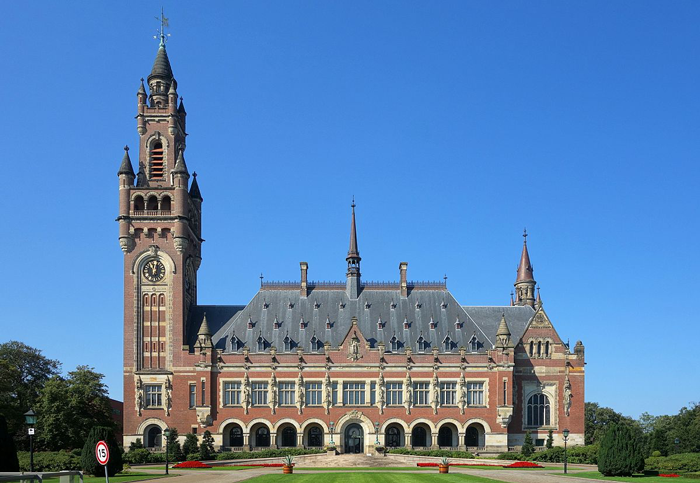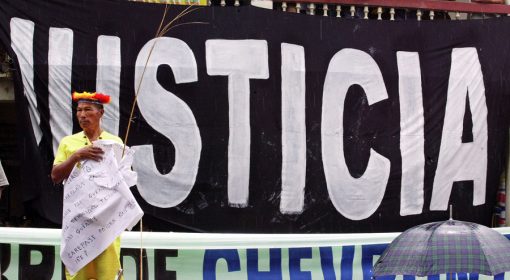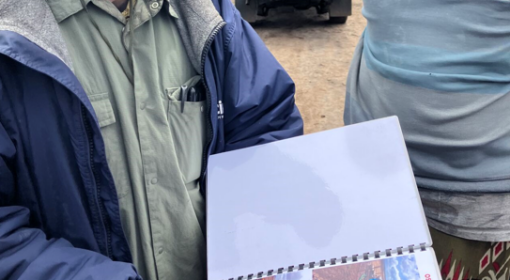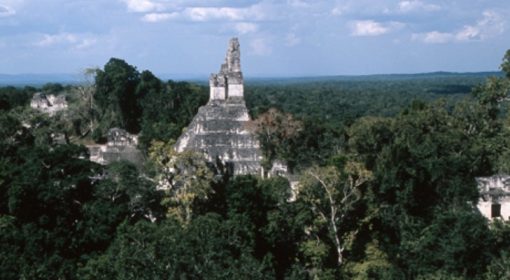Cities of Justice? Dangerous Pretensions…
posted by Frank van Steenbergen
November 28, 2018

Here is the story. There is no justice in the laws of this world. The idea of ‘justice’ embedded in the legal system and those that make their living from it may mislead us and make it harder for us to see the raw powerplay and injustice that is the real deal.
Take this. A Canadian company asks for a concession to develop a potassium mine in Ethiopia. Its entire survey is not serious and there is no effort to develop the mine. It then sells the concession to another company that is equally non-serious. In the meantime the Ethiopian State puts a tax claim on the concession holder– in line with the concession rights– of USD 15 M. The concession holder then brings the case to The Hague in the Netherlands and sues the State of Ethiopia for USD 213 M for not being able to develop the mine. The company does so because it has a MAIL BOX in the Netherlands and through this can move Bilateral Investment Treaty which includes the so-called Investor State Dispute Resolution Settlement.
The case is brought to The Hague. The Hague calls itself the ‘The City of Justice’. Why? Because it has the Peace Palace and the International Criminal Court. Bear in mind that the International Criminal Court has in 20 years of existence only brought six cases to a conclusion – all by chance convicting African political stallwarts. Not a lot to show. What is the message and how does the perception work? That criminal practices are in Africa. This is wrong – if there is anything to say it is that in other parts of the world this criminal practices are less personified – in fact the moving around of accountability and traceability is very much part of the crime that is imposed on us. The epitome is the Cum-ex case whereby stock were sold between shareholders in such a fast and hidden way that governments were swindled out of huge taxes – the image of crime is that of the trickster and the elegant pickpocket not of the crook.
Back to the main story. What is the the ISDS – how does it work? It has its origins in the 1950s and 1960s. Why is it loaded? Because it is always the big one against the small one. No case has been brought against the state of the People’s Republic of China or the Russian Republic. The target state are usually the developing countries that have entered. The stupidity is that this will discourage relatively small countries to enter into Foreign Direct Investment.
Why is it loaded? Because it is only companies that can raise the case – not the states. It is like a game in which the result can only be a victory for Team A or a draw. There is no appeal either. So when the states have acted on behalf of its population or has even lost the case brought by its own population, it is still liable and likely (60% of the cases are lost or settled by the States) to pay out itself. Double squeeze.
Moreover, the knee-jerk reaction of the States is to settle – scared by the high court costs (one wonders why this has to be) of on average USD 8 M per case.
Here is another illustrative case. Chevron – Texaco. In the 1990s Texaco exploited the oil reserves of the Ecuadorian Amazon – ignoring the normal good practices at that time of taking care of the oil waste. The end result was an area the size of Switzerland was dotted with oil waste sometime barely hidden beneath the surface. It destroyed the access to safe natural water, ended fishing grounds and gave rise to widespread cancer in one of the most pristine parts of the world. It was the Resource Curse at its worst – not only was the wealth taken by outsiders with nothing to show for the population living in the Amazon – but the area was left utterly spoiled – with the smell of oil, the scent of the devil, left behind. Then this turned into a series of court cases between the people of the Amazon and Chevron. At Chevron’s request the case was taken up in Ecuador itself. This was a bad gamble because it in 2011 the verdict was passed that Chevron had to pay out 9.5 Billion USD to the victims. Chevron appealed on every occassion but lost the case in all four layers of the judicial system. Even as late as July 2018 the Supreme Court in Ecuador decided that the verdict would stay.
Now enter the Injustice. Chevron has been fighting tooth and mail – employing 100s of lawyers which it could afford. Even that did not help its case. But as it was for the potassium mine cheater, for this sore loser, there is this loophole – the Investor State Dispute Resolution System. Chevron moved its case there – and had the Court of Arbitration decide on the case. The Court of Arbitration has three arbitrators – all selected from an official short list: one selected by the Multinational, one by the State and third mutually. Because of the shortlist the options are limited.
Verdict of 30 August: the State of Ecuador is ordered not to implement its court ruling neither in Ecuador nor in any other country. A penalty is to be settled but will probably be upwards of USD 100 M (the average penalty from the ISDS is USD 500 M anyhow). There are several things very fishy on this verdict – here we number them:
First, the ISDS can determine a penalty but that is about all it can do. The penalties are often astronomical as they include entirely speculative foregone future profits (so not only investments probably lost).
Second, the ISDS has no jurisdiction to overturn a legal ruling in any country. It oversteps its authority – for what?
Third. This is the answer to the second question. It oversteps its authority by denying Ecuador to seek justice in other countries and have its court order implemented there and trying to put a claim on Chevrons property, particularly in Canada and Argentina. The amazing thing is that the Chevron divested from Ecuador in 1997. It has no property there, no investment, no future plans. So even having the case at ISDS was absurd. The question with this absurdity, as with other absurdities, was why pursue it then? The answer is that the raw power game is such even a highly dubious legal mechanisms as the ISDS can be bent to serve the interests of those in power.
The good things is that there is a Final Judgement for all of us on what we do, and that Judgement is not in the hands of this World.
{jcomments on}



